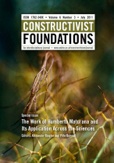liberating conversations


Ximena’s story
“A friend and I were in Madrid where we entered a café and sat down. While we were waiting for our order, a woman also came in and sat at a neighboring table. I found that she was a beautiful young woman with big deep eyes, yet I felt that she was not in well-being and that suffering.
She was centered in herself, and as she begins to eat her food, I see, feel that there is no pleasure in her as she eats and drinks, and I feel that she eats as a sad being just to survive. She was no longer alien to me. As she begins to talk on her cellphone, and I begin to drink my café; I feel and listen to the tone of her voice, to the sound of her words, and I find myself unwillingly listening a dispute, a quarrel. I feel moved, I halt for a moment, and as I listen, listening from where she was saying what she was saying, I hear a desperate appeal: Please listen to me, listen to what I am saying! Father! Can you for once put yourself in my place?”
...
“This unexpected conversation was a spontaneous happening in my professional activities, not an accident. What this episode of daily living reveals is that seeing, listening, feeling in the relational opening that love makes can free us from the pain of any cultural trap. Indeed, this episode also shows us that the path that leads to the recovery of well-being alone and in the company of others is the path of recovery of self-love and self-respect. One can see in liberating conversations all that has to occur in the flow of a conversation for the liberating consequences of a liberating conversation to happen.”
Dávila, Liberating Conversations
... in the listening
“For a liberating conversation to happen the person listening must understand, comprehend and feel that:
-
a) a reflection is an act of self-respect and self-love in which one observes what one does without prejudices, without expectations and without demands;
-
b) the person that reflects on what she feels, thinks and does lives a spontaneous transformation of the configuration of her inner feelings and emotions that frees her from the hold of her certainties and attachments;
-
c) the act of reflection as an act-process of seeing-listening in the domain of love, is the only act-process of self observing that permits a person to come out of any psychic and bodily trap; and
-
d) a liberating conversation can only occur in the domain of listening-seeing without prejudices, without demands and without expectations, that is the domain of love.”
Dávila, Liberating Conversations

Ximena Dávila
When Maturana retired from his Professorship at the University of Chile, he and Ximena Dávila co-founded what is currently known as the Escuela Matríztica, in Santiago, Chile. Ximena comes to this work from her background as a Family Therapist. Her works are largely published in Spanish, hence I am not familiar with them. However, when I took on the role of guest editor for an issue of Construcitivst Foundations, I was able to invite her to submit a paper in English. Sections from this paper, where she describes what she calls “liberating conversations” are excerpted for to you below.
I also have the privilege of co-presenting a workshop with both Ximena and Humberto in Sardinia in the summer of 2011, so I have had the opportunity to meet this warm and thoughtful person, who clearly pays attention to the subtle nuances in emotional flow, and is deeply concerned with human wellbeing. She will also be presenting a paper, with the help of a translator, at the conference I am organizing for July, 2012.
What her work emphasizes for me is the significance of honesty and candor; which is not nearly the same as “disclosure” (as many encounter groups of the 1970’s promoted, as I now perceive to be a surrogate for intimacy). Further, I see liberating conversations as happening in love, accepting the other so that the conversation the conversation does not lead them to defend or explain. This creates a space for them to shift their perspective and their behaviour without threatening their sense of identity or evoking a sense of conflict with their beliefs or ethical concerns.
an invitation
I intentionally left out most of the story Ximena told in her paper, thinking that this might serve as an invitation for you to read her paper. Constructivist Foundations is a free online journal. The editor, Alexander Riegler, produces three volumes per year on various themes. He believes in free access to knowledge, and only asks you to register so that he has a sense of the extent of his readership.


surprise


